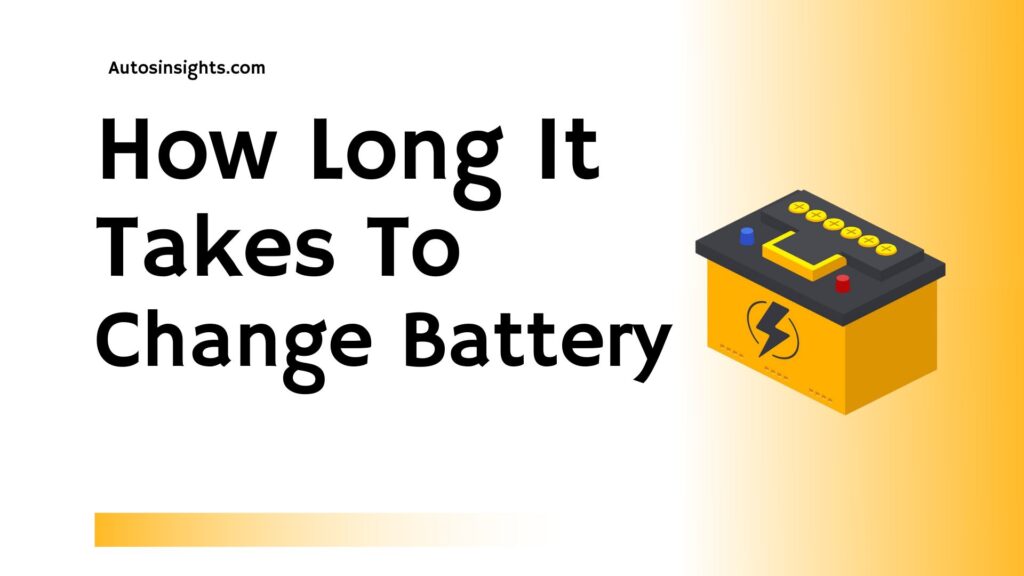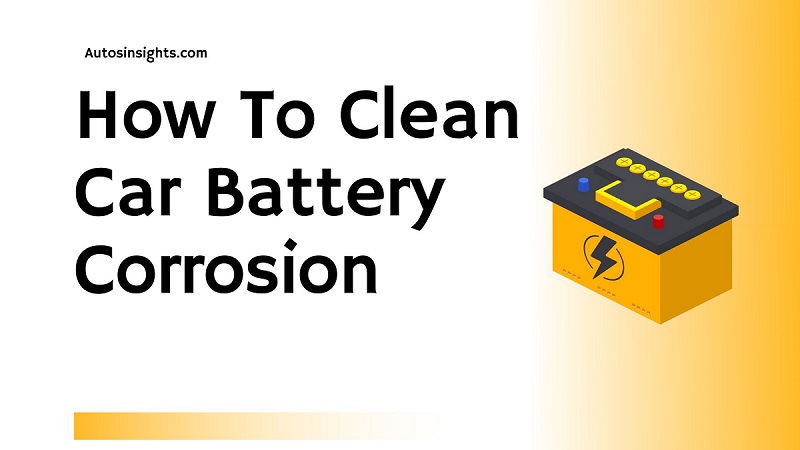It is usual for a car battery to make some slight sloshing or gurgling sounds as the acid inside shakes around.
However, if the car battery is making loud, continuous sloshing sounds, or if the battery case is bulging or leaking, and some battery corrosion it may be a sign of a problem. The battery should be checked by a mechanic as soon as possible.
Car Battery Sloshing Sound -2023 Guide

There are a few reasons why a car battery might make more sloshing sounds a mixture of distilled water an battery acid . One possibility is that the battery is overcharged, which can cause the acid inside to become more active and produce more gas.
One such cause is that the battery in the car is defective and cannot maintain a charge. In either case, it is essential to have the battery checked and replaced to ensure the car can start and run reliably.
How do I fix the sloshing sound in my car?
If you are hearing a sloshing sound from your car battery and the battery appears to be functioning normally, there is likely no need to take action to fix the sound.
As I mentioned earlier, it is normal for a car battery to make a sloshing sound when it is moved around or shaken, as the liquid electrolyte inside the battery can move freely within its cells.
If you hear the sloshing sound and the battery is not functioning correctly, it could be a sign of a problem that needs to be addressed.
In this case, you may need to have the battery checked by a mechanic or replaced. Some possible issues that could cause a car battery not to function properly include the following:
Dead battery:
If your car battery is over, your car will not start.
Damaged battery:
It may not hold a charge or function properly if damaged. This could be caused by physical damage to the battery, such as a crack in the casing, or by corrosion on the battery terminals.
Alternator:
If the alternator fails, it may not be able to keep the battery charged, which could cause it to fail or malfunction.
Why does my engine sound like it’s sloshing?
There are some reasons why your engine might sound sloshing. Some potential causes include the following:
Oil level:
The low engine oil level is also a significant cause of the sloshing sound. It can cause the oil to slosh around and create a sloshing sound.
Loose oil pan:
If the oil pan is open, it can cause the oil to slosh around and create a sloshing sound.
Worn or damaged engine bearings:
Worn or damaged engine bearings can cause the engine to make a sloshing sound as the paths cannot correctly support the engine’s moving parts.
Loose or damaged engine components:
Any loose or damaged components in the engine can cause a sloshing sound as they move around.
When You Should be Concerned with a sloshing Car Battery
A few signs may indicate that your car battery is experiencing sloshing, which is the movement of the electrolyte inside the battery cells. Some of these signs include:
The battery is leaking or has a cracked case
If you notice that your battery is leaking or has a cracked case, this could be a sign of sloshing. The movement of the electrolyte inside the battery can cause the case to become damaged, leading to leaks or cracks.
The battery is swollen or bulging
If the battery is swollen or bulging, this could also be a sign of sloshing. The movement of the electrolyte inside the battery can cause the case to become pressurized, leading to a swollen or bulging appearance.
The battery is not holding a charge
If your battery is not holding a charge or is losing power quickly, this could be a sign that the electrolyte inside the battery is not functioning properly. Sloshing can cause the electrolyte to become stratified, which can prevent the battery from charging or discharging properly.
How to Select a Proper Charger to Reduce Car Battery sloshing
Battery sloshing refers to the electrolyte movement inside a battery during acceleration or vibration. It can cause harm to the battery, which in turn would lower its power and shorten its life duration.
Battery sloshing can be avoided using a charger designed for your specific battery type. Here are some tips to help you choose a charger that is suitable for your battery:
It is important to utilize a charger that is made for the sort of battery you have, as battery cell chemicals necessitate different charging techniques and voltages.
Built-in charge controller
Overcharging can damage a battery, but a charge controller can help keep things under control.
Look for a charger with a low-voltage drop
Voltage drop refers to the difference between the charger’s input voltage and the battery’s output voltage. A charger with a low voltage drop will charge the battery more efficiently and reduce the risk of sloshing.
Consider the charging current and charging time
The charging current and charging time of a charger will depend on the size and capacity of the battery. A charger with a higher charging current will charge the battery faster. Still, it may also generate more heat and potentially cause damage to the battery if it is not designed to handle the higher current.
By choosing a charger that is compatible with your battery, has a built-in charge controller, has a low voltage drop, and is suitable for the size and capacity of your battery, you can reduce the risk of battery sloshing and improve the performance and lifespan of your battery.
Why do I hear liquid flowing when I start my car
There are a few different reasons you hear a liquid flowing sound when you start your car. When the fuel pump runs, you can listen to a fluid-flowing sound as the fuel is pumped through the fuel lines
When the engine is cold, the coolant circulation system might make a flowing sound as it circulates the coolant through the engine. If the water pump is damaged or not functioning properly, you might hear a flowing sound as the coolant circulates through the system.
If the oil pump is damaged or not working properly, you might hear a flowing sound as the oil circulates through the system. What does a dead battery sound like
A dead battery typically will not make any sound. However, if the battery fails or is low on charge, it may produce a clicking sound when you start the car.
That means the battery needs more juice to start the engine. If you think your battery might be dead or failing, you can try a few things to figure out what’s wrong:
The voltage of a completely charged battery needs to be around 12.7 volts. A reading below this threshold may indicate that the battery is nearly dead or has a low charge.
The battery connections should be checked. Verify that the battery cables and terminals are neat and properly fastened. The battery may not charge or provide power to the starter motor if the connections are loose or unclean.
If the battery case is swollen or leaking, it may be damaged and need to be replaced. New car battery sloshing sound
It’s normal for a new car battery to make a sloshing sound when moving or shaking. This is because the battery contains a mixture of sulfuric acid and water, which can slosh around inside the battery case and create a sloshing sound.
Suppose you notice any other unusual noises or behaviors from your battery. In that case, it’s a good idea to have it checked out by a mechanic to make sure it is functioning properly.
It’s important to keep your battery in good working order, as it is a vital component of your vehicle’s electrical system and is a responsible engine starter and an electrical power source.
Conclusion
Be Careful of the signs of sloshing in your car battery, as it can cause serious damage and complete failure. Suppose you notice any signs, such as leaking, swelling, bulging, or a lack of charge. In that case, checking your battery in a good battery shop is important.
Related Articles:





